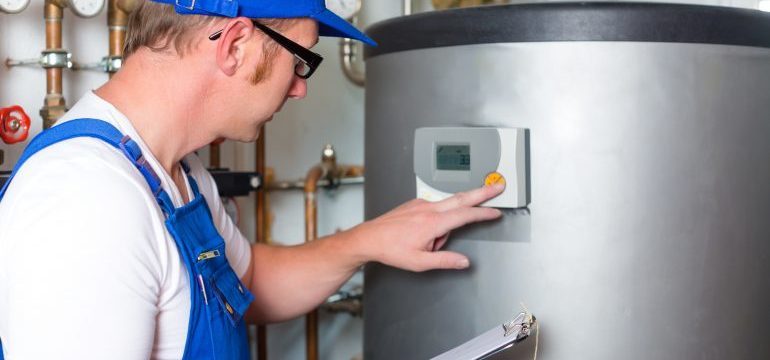When choosing a water heater, homeowners need to know what type of heating system will provide the most efficient delivery at the most affordable cost?
Conventional storage heaters are the most popular and familiar type of water heater. Typically, the tanks hold 40 gallons or more, and are kept hot with gas, an electric coil or propane. A thermostat regulates the water temperature at all times. This is the least expensive type of tank to buy, but most expensive to operate because these tanks stays hot constantly, causing “standby heat loss.” Starting price is about $500.
Tankless or demand heaters operate only as needed, with no reservoir holding heated water. Instead, gas or electric heat rapidly warms the water as it flows through the unit upon demand. Tankless systems can heat water at two to five gallons per minute, so it pays to have low-flow faucet heads throughout the house. Tankless systems save from 8 percent to 34 percent in energy costs to make up for the higher purchase price of approximately $3,000.
Heat pump heaters. Rather than a gas flame or heating coil, a heat pump draws ambient warmth from the surrounding air or ground. These are also called air source and geothermal heat pumps, respectively. These systems start at around $1,200.
Solar water heaters. The sun’s energy is free, making solar heaters energy efficient. Solar heaters are either active or passive, depending on the method used to circulate the water to be heated. Solar heaters work best in warmer climates and often need a conventional heater as a backup for cloudy days and high-demand usage. Solar water heaters start at $8,000.
Home space heater systems. Two types of water heating systems utilize the home’s space heater. One is a tankless system and the other has a reservoir tank. With either, the furnace that keeps you warm around the house doubles as the water heater. These work best in cold climates where heat is needed for greater lengths of time. These start at $1,000.
Your intended heat source will narrow your choice of water heater. Gas and electric can be used on conventional and tankless heaters. The others have their own specialty heat sources. The size of your heater is another determining factor. Each system has its own calculations for determining capacity. The U.S. Department of Energy provides helpful guidance on its website. Also look for the blue Energy Star rating by the U.S. Environmental Protection Agency. Another thing to keep in mind: Gas is generally cheaper than electricity. Finally, ask the utility company or local government agency about any rebates offered for purchase of energy efficient water heaters.
Refer to the owner’s guide for regular maintenance requirements. Heaters with a reservoir tank must be flushed periodically to prevent buildup of sediment that can diminish energy efficiency and clog valves and lines. The pressure relief valve needs periodic inspection as well.


